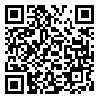Volume 24, Issue 3 (Autumn 2017)
Journal of Translational Medical Research. 2017, 24(3): 207-217 |
Back to browse issues page
Download citation:
BibTeX | RIS | EndNote | Medlars | ProCite | Reference Manager | RefWorks
Send citation to:



BibTeX | RIS | EndNote | Medlars | ProCite | Reference Manager | RefWorks
Send citation to:
Hosseinizadeh M, Khajavi A, Moshki M. Effect of mother's education based on “Theory of Planned Behavior” (TPB) in preventing iron deficiency anemia in 4-24 month children in Ferdows city in 2015. Journals of Birjand University of Medical Sciences 2017; 24 (3) :207-217
URL: http://journal.bums.ac.ir/article-1-2195-en.html
URL: http://journal.bums.ac.ir/article-1-2195-en.html
1- Department of Health Education, Gonabad University of Medical Sciences, Gonabad, Iran.
2- Department of Health, Faculty of Health, Gonabad University of Medical Sciences, Gonabad, Iran ,Abkhajavi@yahoo.com_hz@yahoo.com
3- Department of Health, Faculty of Health, Gonabad University of Medical Sciences, Gonabad, Iran.
2- Department of Health, Faculty of Health, Gonabad University of Medical Sciences, Gonabad, Iran ,
3- Department of Health, Faculty of Health, Gonabad University of Medical Sciences, Gonabad, Iran.
Abstract: (13395 Views)
Background and Aim: Iron deficiency anemia is the most common hematic disorder in infants and children, and is regarded as a major health problem. The easiest way to prevent this disorder is to take iron supplements on a daily basis (i.e., iron supplementation). The current study aimed to determine the effect of education to mothers based on the theory of planned behavior (TPB) on iron drop intake of infants and children aged 6 to 24 months.
Materials and Methods: This is a randomized, controlled field clinical trial incorporating 100 mothers with 6-20 month infants from Ferdows city. Two healthcare centers were selected as case and control groups by simple randomization method. Eligible participants were then selected from each center by systematic sampling method. A researcher-made questionnaire was used to collect data based on demographics and TPB constructs. Reliability and validity of the questionnaire was validated according to expert view. The data were analyzed in IBM SPSS software using Chi-Square, Independent T, Fisher’s exact T, Paired T, and Cochran tests.
Results: Before the educational intervention, control and case groups were not significantly different in terms of TPB constructs’ mean scores. However, after intervention, mean scores of attitude increased from 34.69±3.391 to 39.82±4.260; abstract norms increased from 23.58±2.532 to 26.60±2.942; perceived behavioral control from 14.20±2.109 to 17.56±2.082; and behavioral intention from 19.26±2.293 to 22.32±2.691. While these differences were significant in the case group, the differences were not significant in the control group.
Conclusion: TPB-based education provided to mothers can be contributory to the prevention of behaviors leading to iron deficiency anemia in children.
Materials and Methods: This is a randomized, controlled field clinical trial incorporating 100 mothers with 6-20 month infants from Ferdows city. Two healthcare centers were selected as case and control groups by simple randomization method. Eligible participants were then selected from each center by systematic sampling method. A researcher-made questionnaire was used to collect data based on demographics and TPB constructs. Reliability and validity of the questionnaire was validated according to expert view. The data were analyzed in IBM SPSS software using Chi-Square, Independent T, Fisher’s exact T, Paired T, and Cochran tests.
Results: Before the educational intervention, control and case groups were not significantly different in terms of TPB constructs’ mean scores. However, after intervention, mean scores of attitude increased from 34.69±3.391 to 39.82±4.260; abstract norms increased from 23.58±2.532 to 26.60±2.942; perceived behavioral control from 14.20±2.109 to 17.56±2.082; and behavioral intention from 19.26±2.293 to 22.32±2.691. While these differences were significant in the case group, the differences were not significant in the control group.
Conclusion: TPB-based education provided to mothers can be contributory to the prevention of behaviors leading to iron deficiency anemia in children.
Type of Study: Original Article |
Subject:
Health Education
Received: 2016/11/5 | Accepted: 2017/01/22 | ePublished: 2017/11/4
Received: 2016/11/5 | Accepted: 2017/01/22 | ePublished: 2017/11/4
Send email to the article author
| Rights and permissions | |
 |
This work is licensed under a Creative Commons Attribution-NonCommercial 4.0 International License. |





